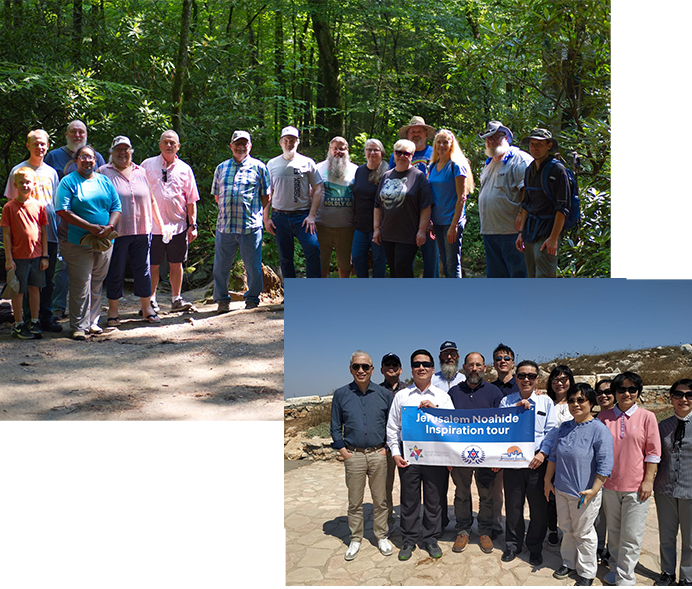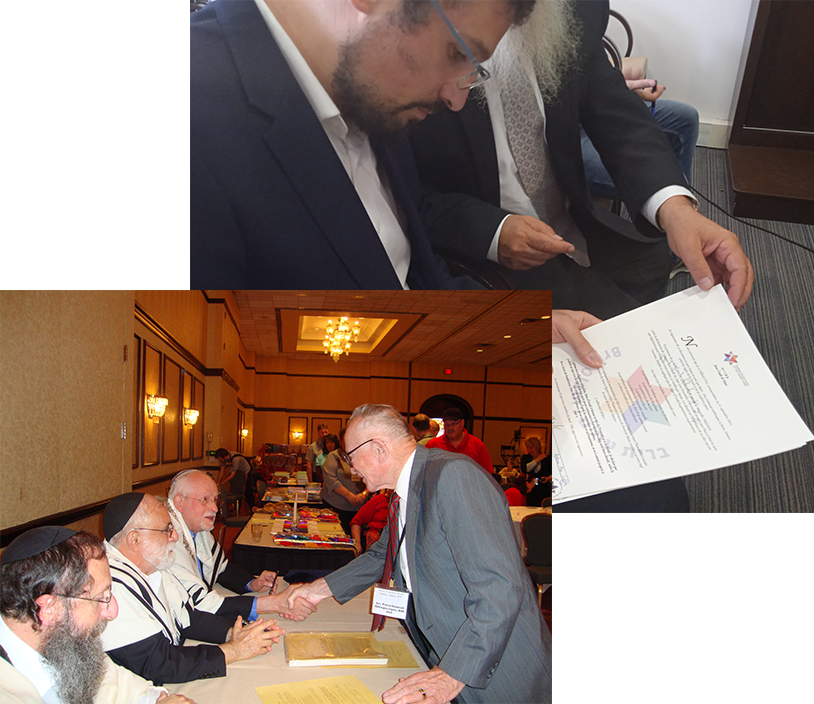I Noachidi sono una comunità di non ebrei che seguono le giuste leggi di Noè secondo gli insegnamenti della Bibbia Ebraica.
Una missione comune unisce individui Noachidi provenienti da diverse culture in tutto il mondo: vivere in modo etico, promuovere la pace e contribuire alla riparazione del mondo.
Trova uno scopo, conforto e una comprensione più profonda della spiritualità. Questi libri possono essere acquistati come libri cartacei o Ebook e in varie lingue.
Le lettere allegate sono lettere di sostegno ai Noachidi e al Centro Mondiale Noachidi (Brit Olam) per i loro sforzi nella diffusione della Fede Noachide in tutto il mondo. (Le traduzioni in Italiano saranno presto disponibili)
“Giuro la mia fedeltà ad Hashem,
Dio d’Israele”
A list of forbidden sexual relations—meaning intimate relationships that the Torah explicitly forbids to all human beings, including the descendants of Noah.
When people marry, what obligations do they have toward one another?
Several recommended modes of conduct for descendants of Noah.
Teologia, etica e filosofia ebraica: esaminare le grandi domande della vita.
Beyond Religion: A New Covenant for Humanity is Here.
This is the strategic document the world needs. The Noahide Manifesto presents more than just a philosophy; it's a detailed Implementation Plan for uniting all of humanity under a timeless moral code. Learn how the ancient Seven Laws of Noah, combined with a modern emphasis on mutual responsibility (The Eighth Step), are forming the backbone of a global spiritual government. Find out the concrete steps to establish a local congregation, make your personal declaration, and become a "Righteous Among the Nations" through Brit Olam. Read the whole strategy and claim your place in the global revival led from Jerusalem.
del Rabbino Ouri Cherki
In Parshat Pinhas, the daughters of Zelophehad prompt a pivotal change in Jewish inheritance laws, leading to a new directive that allows daughters to inherit when there are no sons. This narrative illustrates the dynamic interaction between divine guidance and the people's initiative. Moshe, initially unsure, receives instructions from HaShem only after the daughters raise their concern. This story, along with similar cases, underscores the importance of the people's role in the evolution of Jewish law and Divine revelation through communal inquiry and response.
In Parshat Balak, Balaam, a renowned prophet among nations, embodies the complex mix of admiration and jealousy towards Israel. Though intending to curse Israel, he ultimately blesses them, illustrating Divine inspiration and prophecy's influence. This paradoxical attitude reflects broader themes of anti-Semitism and the favored child's psychoanalytic response. The Torah emphasizes hope, as prophecy in the synagogue signifies potential Divine influence on all humanity, supported by the Midrash Tanna D'bei Eliyahu's assertion of the Holy Spirit's universal accessibility.
Sono d'accordo nel sostenere le Sette Leggi universali di Noè, che furono date da Dio a Noè come un insieme di leggi vincolanti per tutta l'umanità e che furono rivelate da Moshe. I dettagli e l'osservanza di queste leggi sono stati preservati, chiariti ed esposti dai saggi di Israele di generazione in generazione.

